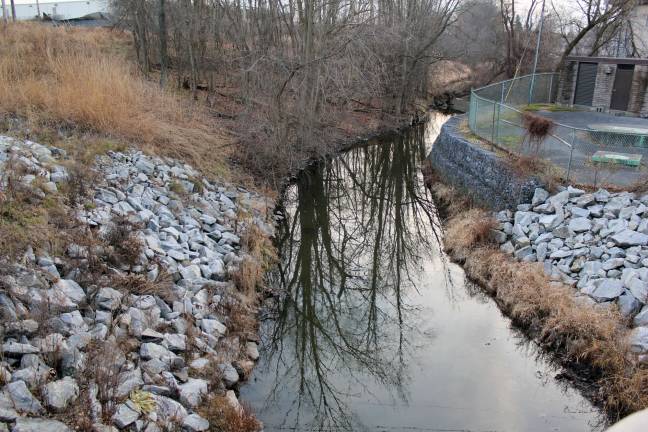Black Meadow sewer plant blasted

By Edie Johnson
GOSHEN — The county's proposal to spend $1 million on a study to look into building a sewage treatment plant on the Black Meadow Creek in Chester was quickly shot down Wednesday.
Town of Chester Supervisor Steve Neuhaus, who is also running for county executive in 2013, called the idea "insane." He said it was the same as if he were to go over to the county executive's house and built a shed in his yard.
"The county does not even own land in Chester," Neuhaus said.
He acknowledged that the county needs more sewer capacity.
"The problem," he said, "is that the towns involved had not even been consulted."
County Legislator Leigh Benton of Newburgh disagreed.
"We don't have to call Chester every time we need a pump," he said.
Village of Chester Mayor Phil Valastro said not consulting local officials was "rude." He said the village often does not even get copies of the county's sewer budget, as required by the county's contract with municipalities.
"In fact," said Valastro, "in ten years we have only gotten three budgets."
Neuhaus said that in the past, local officials were included in two general discussions with Pete Hammond, the county sewer commissioner, about a potential plant. A partial permit was granted for a site adjacent to the Tetz Industrial Park. But then came protest letters from Orange Environment, local farmers, and The Castle Fun Center, he said. The idea was shelved.
Town of Goshen Supervisor Doug Bloomfield joined Valastro and Neuhaus in noting that the Black Meadow Creek has "threatened" status. They pointed to a 2005 environmental study by the Metropolitan Conservation Alliance that identified Black Meadow Creek as one five areas in Chester critical to maintaining biodiversity. The Town of Chester's latest master plan increased setbacks along the creek to 100 feet from its center in order to control non-point source pollution, sewer outfalls, and flooding, among other potential problems; and to enhance scenery, water quality, and recreational opportunities, among the potential benefits. The study showed numerous species with habitat along the Black Meadow were threatened and endangered. It identified as an important biodiversity corridor areas in Goshen, where the Black Meadow flows into the Otter Kill and Purgatory Swamp, and eventually to Tomahawk Lake and the Hudson River.
Small meeting included only Harriman and Woodbury
A number of legislators said they were shocked that the democratic process was sidestepped in coming up with this proposal. They referred to a successful lawsuit brought by Town of Blooming Grove Supervisor Frank Fornario that stopped the county's attempt to expand its sewer district to Blooming Grove and Chester without involving the towns in the decision and without adequately studying the environmental consequences.
Legislator Jeffrey Berkman of Middletown, the Democratic caucus leader, said all his future votes would depend on whether the process had been sufficiently democratic.
The legislative counsel, Antoinette Reed, said there had been a meeting — but it was held two days after Hurricane Sandy, and only representatives from Harriman and Woodbury were present. She said getting word out about the meeting was difficult because of the storm.
Still, several legislators were clearly angry.
"We had held up in front of us an agreement that we would consult (with all affected towns) every time," said Legislator Chris Eachus of Cornwall. "It's got to stop. We have to stop this kind of decision-making."
Others were concerned about the uses to which the sewer authority's $4.5 million reserve might be put. Susie Cleaver, who owns two farms in Goshen, implored legislators to fix problems that already exist, like infiltration and foul odors, before making plans to expand.
"The pipes and infrastructure (in Goshen and Harriman) are old," she said. "The track record is deplorable. And sometimes you just have to fix the problems. Your group is responsible."
Jerry Boss of Goshen said the legislature should look at environmental issues first, in order to avoid starting a huge, costly project only to find out later there are too many environmental prohibitions.